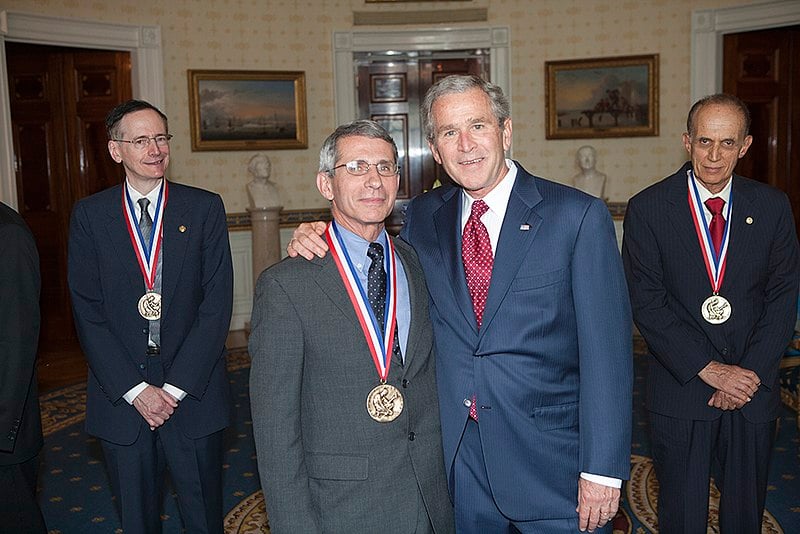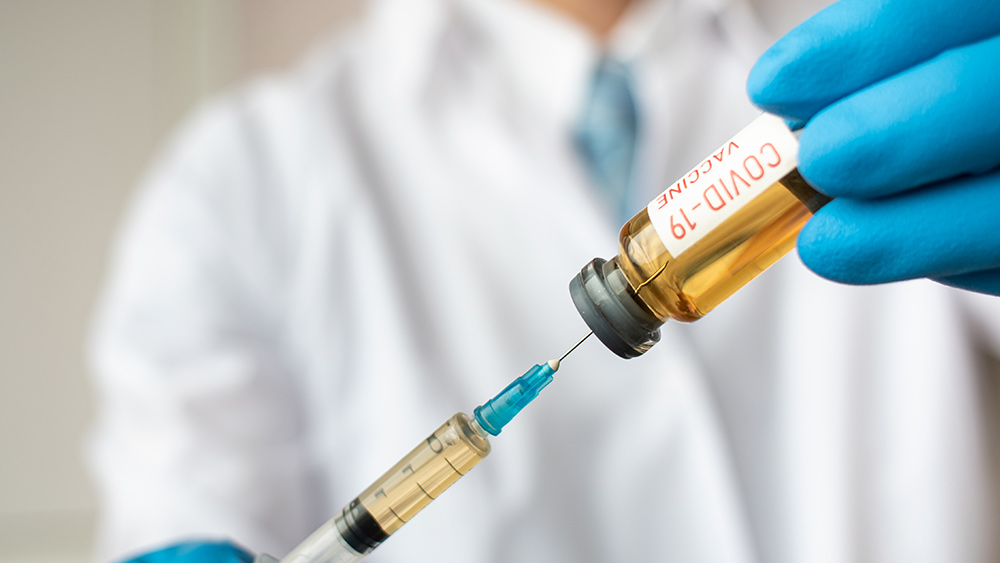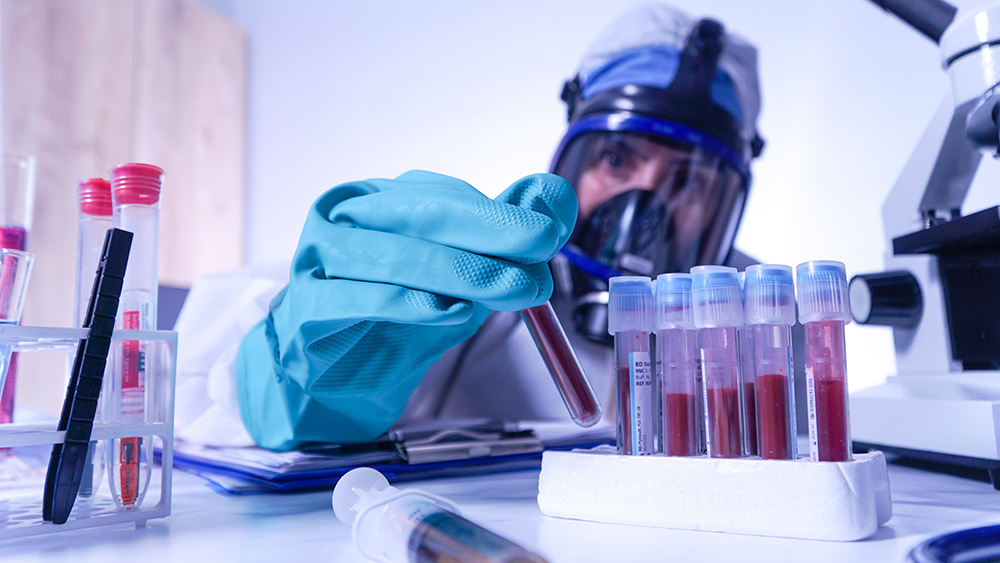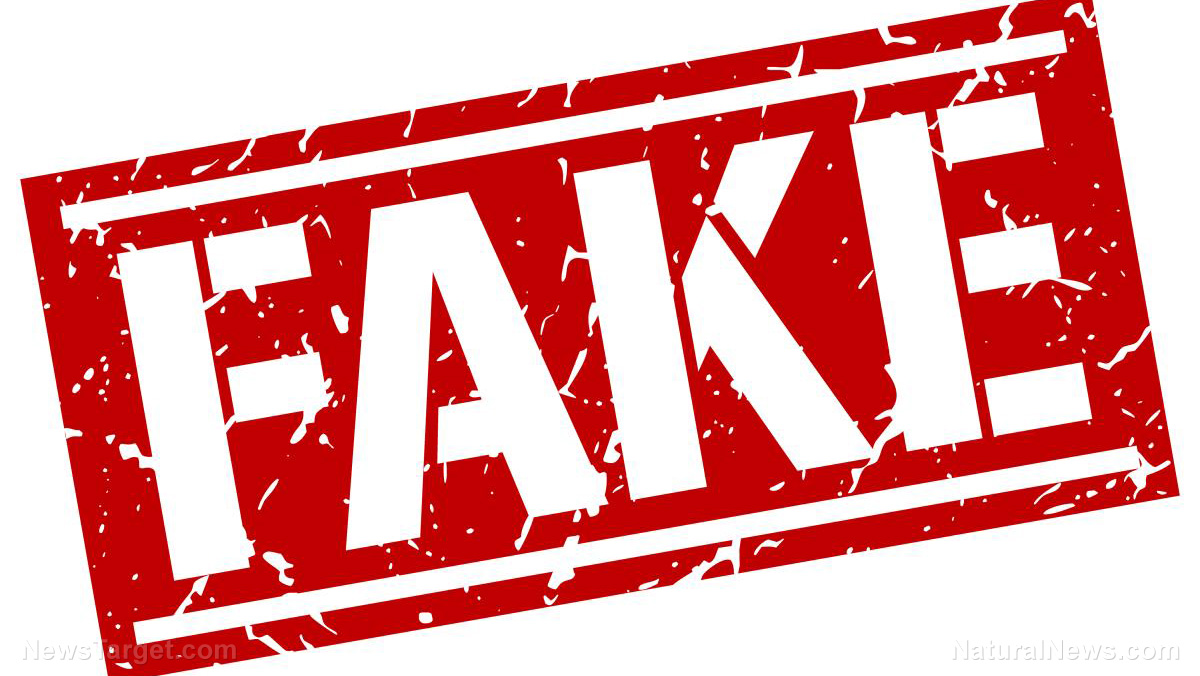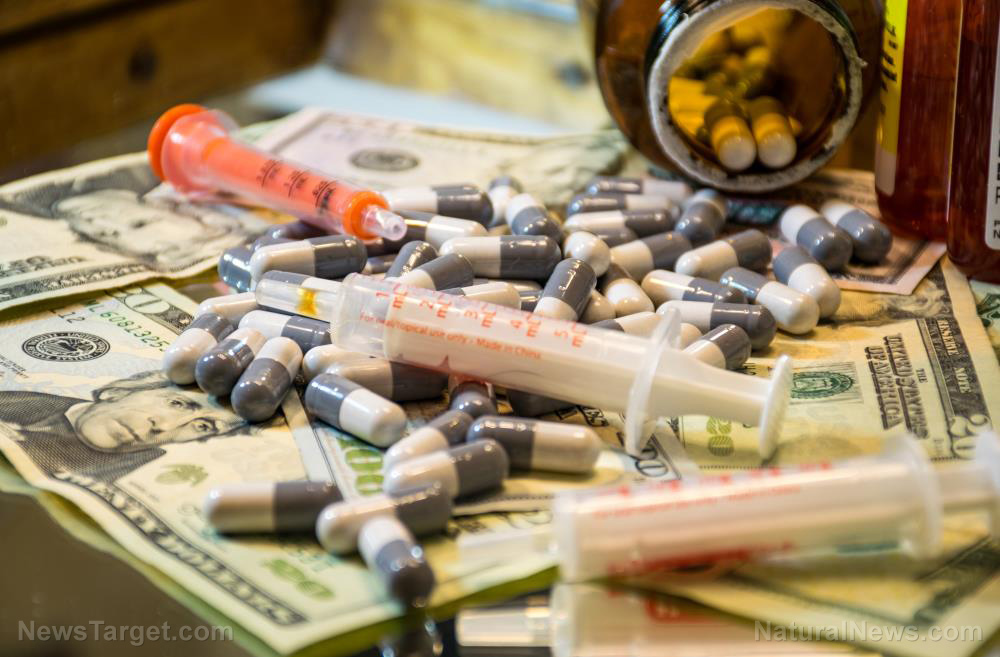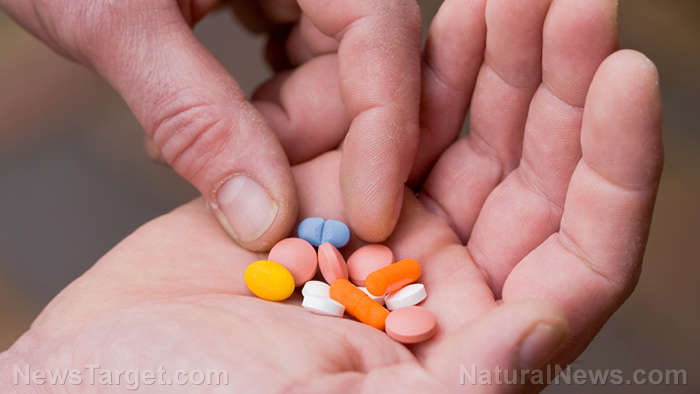LancetGate: “Scientific corona lies” and Big Pharma corruption. Hydroxychloroquine versus Gilead’s Remdesivir
07/12/2020 / By News Editors

Introduction:
(Article by Prof Michel Chossudovsky republished from GlobalResearch.ca)
There is an ongoing battle to suppress Hydroxychloroquine (HCQ), a cheap and effective drug for the treatment of Covid-19. The campaign against HCQ is carried out through slanderous political statements, media smears, not to mention an authoritative peer reviewed “evaluation” published on May 22nd by The Lancet, which was based on fake figures and test trials.
The study was allegedly based on data analysis of 96,032 patients hospitalized with COVID-19 between Dec 20, 2019, and April 14, 2020 from 671 hospitals Worldwide. The database had been fabricated. The objective was to kill the Hydroxychloroquine (HCQ) cure on behalf of Big Pharma.
While The Lancet article was retracted, the media casually blamed “a tiny US based company” named Surgisphere whose employees included “a sci-fi writer and an adult content model” for spreading “flawed data” (Guardian). This Chicago based outfit was accused of having misled both the WHO and national governments, inciting them to ban HCQ. None of those trial tests actually took place.
While the blame was placed on Surgisphere, the unspoken truth (which neither the scientific community nor the media have acknowledged) is that the study was coordinated by Harvard professor Mandeep Mehra under the auspices of Brigham and Women’s Hospital (BWH) which is a partner of the Harvard Medical School.
When the scam was revealed, Dr. Mandeep Mehra who holds the Harvey Distinguished Chair of Medicine at Brigham and Women’s Hospital apologized:
I have always performed my research in accordance with the highest ethical and professional guidelines. However, we can never forget the responsibility we have as researchers to scrupulously ensure that we rely on data sources that adhere to our high standards.
It is now clear to me that in my hope to contribute this research during a time of great need, I did not do enough to ensure that the data source was appropriate for this use. For that, and for all the disruptions – both directly and indirectly – I am truly sorry. (emphasis added)
Mandeep R. Mehra, MD, MSC (official statement on BWH website)
But that “truly sorry” note was just the tip of the iceberg. Why?
Studies on Gilead Science’s Remdesivir and Hydroxychloroquine (HCQ) Were Conducted Simultaneously by Brigham and Women’s Hospital (BWH)
While The Lancet report (May 22, 2020) coordinated by Dr. Mandeep Mehra was intended “to kill” the legitimacy of HCQ as a cure of Covid-19, another important (related) study was being carried out (concurrently) at BWH pertaining to Remdesivir on behalf of Gilead Sciences Inc. Dr. Francisco Marty, a specialist in Infectious Disease and Associate Professor at Harvard Medical School was entrusted with coordination of the clinical trial tests of the antiviral medication Remdesivir under Brigham’s contract with Gilead Sciences Inc:
Brigham and Women’s Hospital began enrolling patients in two clinical trials for Gilead’s antiviral medication remdesivir. The Brigham is one of multiple clinical trial sites for a Gilead-initiated study of the drug in 600 participants with moderate coronavirus disease (COVID-19) and a Gilead-initiated study of 400 participants with severe COVID-19.
… If the results are promising, this could lead to FDA approval, and if they aren’t, it gives us critical information in the fight against COVID-19 and allows us to move on to other therapies.”
While Dr. Mandeep Mehra was not directly involved in the Gilead Remdesevir BWH study under the supervision of his colleague Dr. Francisco Marty, he nonetheless had contacts with Gilead Sciences Inc: “He participated in a conference sponsored by Gilead in early April 2020 as part of the Covid-19 debate” (France Soir, May 23, 2020)
What was the intent of his (failed) study? To undermine the legitimacy of Hydroxychloroquine?
According to France Soir, in a report published after The Lancet Retraction:
The often evasive answers produced by Dr Mandeep R. Mehra, … professor at Harvard Medical School, did not produce confidence, fueling doubt instead about the integrity of this retrospective study and its results. (France Soir, June 5, 2020)
Was Dr. Mandeep Mehra in conflict of interest? (That is a matter for BWH and the Harvard Medical School to decide upon).
Who are the Main Actors?
Dr. Anthony Fauci, advisor to Donald Trump, portrayed as “America’s top infectious disease expert” has played a key role in smearing the HCQ cure which had been approved years earlier by the CDC as well as providing legitimacy to Gilead’s Remdesivir.
Dr. Fauci has been the head of the National Institute of Allergy and Infectious Diseases (NIAID) since the Reagan administration. He is known to act as a mouthpiece for Big Pharma.
Dr. Fauci launched Remdesivir in late June (see details below). According to Fauci, Remdesevir is the “corona wonder drug” developed by Gilead Science Inc. It’s a $1.6 billion dollar bonanza.
Gilead Sciences Inc: History
Gilead Sciences Inc is a Multibillion dollar bio-pharmaceutical company which is now involved in developing and marketing Remdesivir. Gilead has a long history. It has the backing of major investment conglomerates including the Vanguard Group and Capital Research & Management Co, among others. It has developed ties with the US Government.
 In 1999 Gilead Sciences Inc, developed Tamiflu (used as a treatment of seasonal influenza and bird flu). At the time, Gilead Sciences Inc was headed by Donald Rumsfeld (1997-2001), who later joined the George W. Bush administration as Secretary of Defense (2001-2006). Rumsfeld was responsible for coordinating the illegal and criminal wars on Afghanistan (2001) and Iraq (2003).
In 1999 Gilead Sciences Inc, developed Tamiflu (used as a treatment of seasonal influenza and bird flu). At the time, Gilead Sciences Inc was headed by Donald Rumsfeld (1997-2001), who later joined the George W. Bush administration as Secretary of Defense (2001-2006). Rumsfeld was responsible for coordinating the illegal and criminal wars on Afghanistan (2001) and Iraq (2003).
Rumsfeld maintained his links to Gilead Sciences Inc throughout his tenure as Secretary of Defense (2001-2006). According to CNN Money (2005): “The prospect of a bird flu outbreak … was very good news for Defense Secretary Donald Rumsfeld [who still owned Gilead stocks] and other politically connected investors in Gilead Sciences”.
Anthony Fauci has been in charge of the NIAID since 1984, using his position as “a go between” the US government and Big Pharma. During Rumsfeld’s tenure as Secretary of Defense, the budget allocated to bio-terrorism increased substantially, involving contracts with Big Pharma including Gilead Sciences Inc. Anthony Fauci considered that the money allocated to bio-terrorism in early 2002 would:
“accelerate our understanding of the biology and pathogenesis of microbes that can be used in attacks, and the biology of the microbes’ hosts — human beings and their immune systems. One result should be more effective vaccines with less toxicity.” (WPo report)
In 2008, Dr. Anthony Fauci was granted the Presidential Medal of Freedom by president George W. Bush “for his determined and aggressive efforts to help others live longer and healthier lives.”
The 2020 Gilead Sciences Inc Remdesivir Project
We will be focussing on key documents (and events)
Chronology
February 21: Initial Release pertaining to NIH-NIAID Remdesivir placebo test trial
April 10: The Gilead Sciences Inc study published in the NEJM on the “Compassionate Use of Remdesivir”
April 29: NIH Release: Study on Remdesivir (Report published on May 22 in NEJM)
May 22, The BWH-Harvard Study on Hydroxychloroquine coordinated by Dr. Mandeep Mehra published in The Lancet
May 22, Remdesivir for the Treatment of Covid-19 — Preliminary Report (NEJM)
June 5: The (fake) Lancet Report (May 22) on HCQ is Retracted.
June 29, Fauci announcement. The $1.6 Billion Remdevisir HHS Agreement with Gilead Sciences Inc
April 10: The Gilead Sciences Inc. study published in the NEJM on the “Compassionate Use of Remdesivir”
A Gilead sponsored report was published in New England Journal of Medicine in an article entitled “Compassionate Use of Remdesivir for Patients with Severe Covid-19” . It was co-authored by an impressive list of 56 distinguished medical doctors and scientists, many of whom were recipients of consulting fees from Gilead Sciences Inc.
Gilead Sciences Inc. funded the study which included several staff members as co-authors.

The testing included a total of 61 patients [who] received at least one dose of remdesivir on or before March 7, 2020; 8 of these patients were excluded because of missing postbaseline information (7 patients) and an erroneous remdesivir start date (1 patient) … Of the 53 remaining patients included in this analysis, 40 (75%) received the full 10-day course of remdesivir, 10 (19%) received 5 to 9 days of treatment, and 3 (6%) fewer than 5 days of treatment.
The NEJM article states that “Gilead Sciences Inc began accepting requests from clinicians for compassionate use of remdesivir on January 25, 2020”. From whom, From Where? According to the WHO (January 30, 2020) there were 82 cases in 18 countries outside China of which 5 were in the US, 5 in France and 3 in Canada.
Several prominent physicians and scientists have cast doubt on the Compassionate Use of Remdesivir study conducted by Gilead, focussing on the small size of the trial. Ironically, the number of patients in the test is less that the number of co-authors: “53 patients” versus “56 co-authors”
Below we provide excerpts of scientific statements on the Gilead NEJM project (Science Media Centre emphasis added) published immediately following the release of the NEJM article:
“‘Compassionate use’ is better described as using an unlicensed therapy to treat a patient because there are no other treatments available. Research based on this kind of use should be treated with extreme caution because there is no control group or randomisation, which are some of the hallmarks of good practice in clinical trials. Prof Duncan Richard, Clinical Therapeutics, University of Oxford.
“It is critical not to over-interpret this study. Most importantly, it is impossible to know the outcome for this relatively small group of patients had they not received remdesivir. Dr Stephen Griffin, Associate Professor, School of Medicine, University of Leeds.
“The research is interesting but doesn’t prove anything at this point: the data are from a small and uncontrolled study. Simon Maxwell, Professor of Clinical Pharmacology and Prescribing, University of Edinburgh.
“The data from this paper are almost uninterpretable. It is very surprising, perhaps even unethical, that the New England Journal of Medicine has published it. It would be more appropriate to publish the data on the website of the pharmaceutical company that has sponsored and written up the study. At least Gilead have been clear that this has not been done in the way that a high quality scientific paper would be written. Prof Stephen Evans, Professor of Pharmacoepidemiology, London School of Hygiene & Tropical Medicine.
“It’s very hard to draw useful conclusions from uncontrolled studies like this particularly with a new disease where we really don’t know what to expect and with wide variations in outcomes between places and over time. One really has to question the ethics of failing to do randomisation – this study really represents more than anything else, a missed opportunity.” Prof Adam Finn, Professor of Paediatrics, University of Bristol.
To review the complete document of Science Media Centre pertaining to expert assessments click here
April 29: The National Institutes of Health (NIH) Study on Remdevisir.
On April 29th following the publication of the Gilead Sciences Inc Study in the NEJM on April 10, a press release of the National Institutes of Health (NIH) on Remdevisir was released. The full document was published on May 22, by the NEJM under the title:
Remdesivir for the Treatment of Covid-19 — Preliminary Report (NEJM)
The study had been initiated on February 21, 2020. The title of the April 29 Press Release was:
“Peer-reviewed data shows remdesivir for COVID-19 improves time to recovery”
It’s a government sponsored report which includes preliminary data from a randomized trial involving 1063 hospitalized patients. The results of the trial labelled Adaptive COVID-19 Treatment Trial (ACTT) are preliminary, conducted under the helm of Dr. Fauci’s National Institute of Allergy and Infectious Diseases (NIAID):
An independent data and safety monitoring board (DSMB) overseeing the trial met on April 27 to review data and shared their interim analysis with the study team. Based upon their review of the data, they noted that remdesivir was better than placebo from the perspective of the primary endpoint, time to recovery, a metric often used in influenza trials. Recovery in this study was defined as being well enough for hospital discharge or returning to normal activity level.
Preliminary results indicate that patients who received remdesivir had a 31% faster time to recovery than those who received placebo (p<0.001). Specifically, the median time to recovery was 11 days for patients treated with remdesivir compared with 15 days for those who received placebo. Results also suggested a survival benefit, with a mortality rate of 8.0% for the group receiving remdesivir versus 11.6% for the placebo group (p=0.059). (emphasis added)
In the NIH’s earlier February 21, 2020 report (released at the outset of the study), the methodology was described as follows:
… A randomized, controlled clinical trial to evaluate the safety and efficacy of the investigational antiviral remdesivir in hospitalized adults diagnosed with coronavirus disease 2019 (COVID-19) …
Read more at: GlobalResearch.ca
Tagged Under: Anthony Fauci, Big Pharma, CDC, conspiracy, coronavirus, corruption, covid-19, fraud, Gilead, health, hydroxychloroquine, Lancet, rigged, science journals, who cdc
RECENT NEWS & ARTICLES
PharmaceuticalFraud.com is a fact-based public education website published by Pharmaceutical Fraud Features, LLC.
All content copyright © 2018 by Pharmaceutical Fraud Features, LLC.
Contact Us with Tips or Corrections
All trademarks, registered trademarks and servicemarks mentioned on this site are the property of their respective owners.

